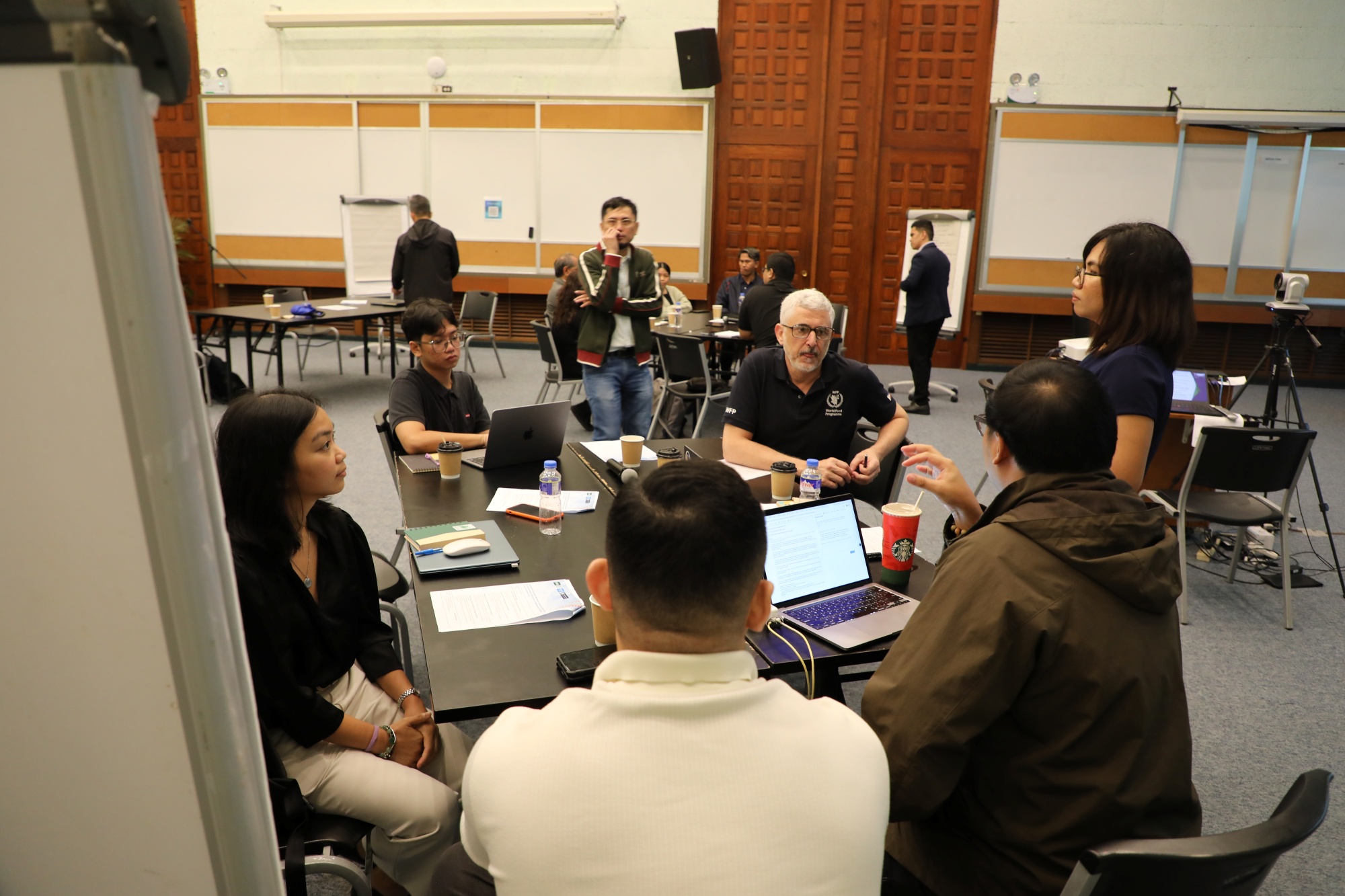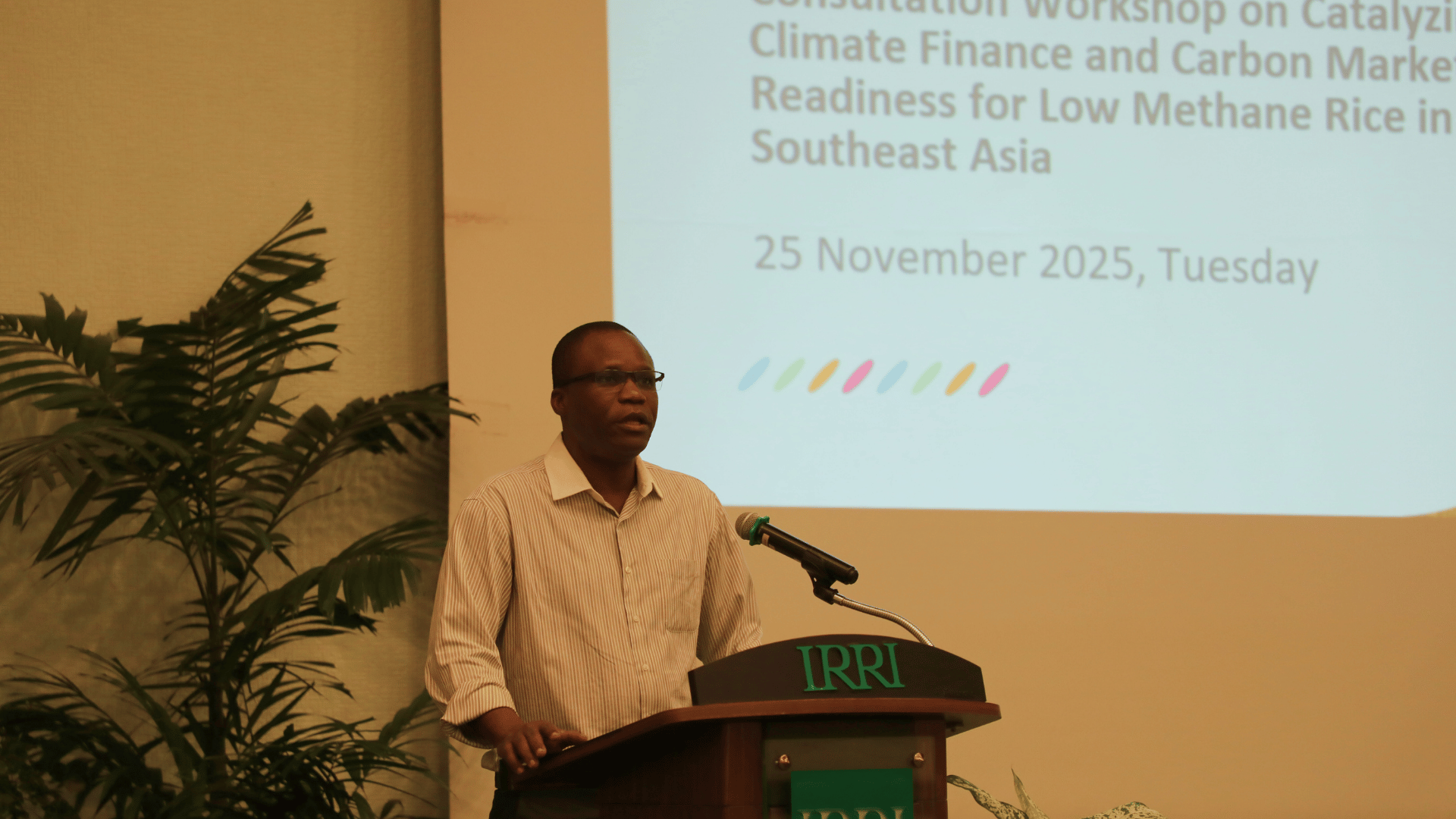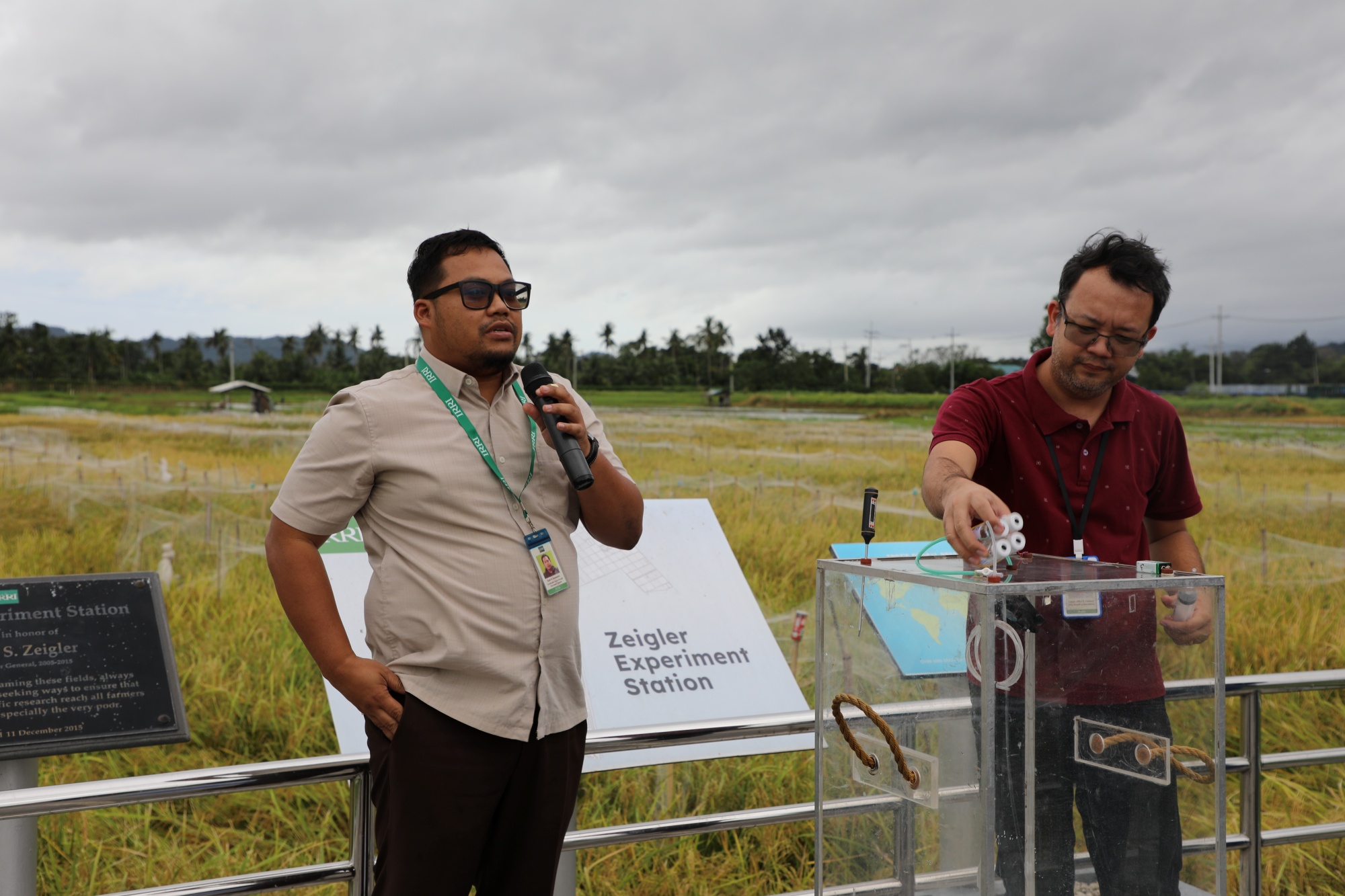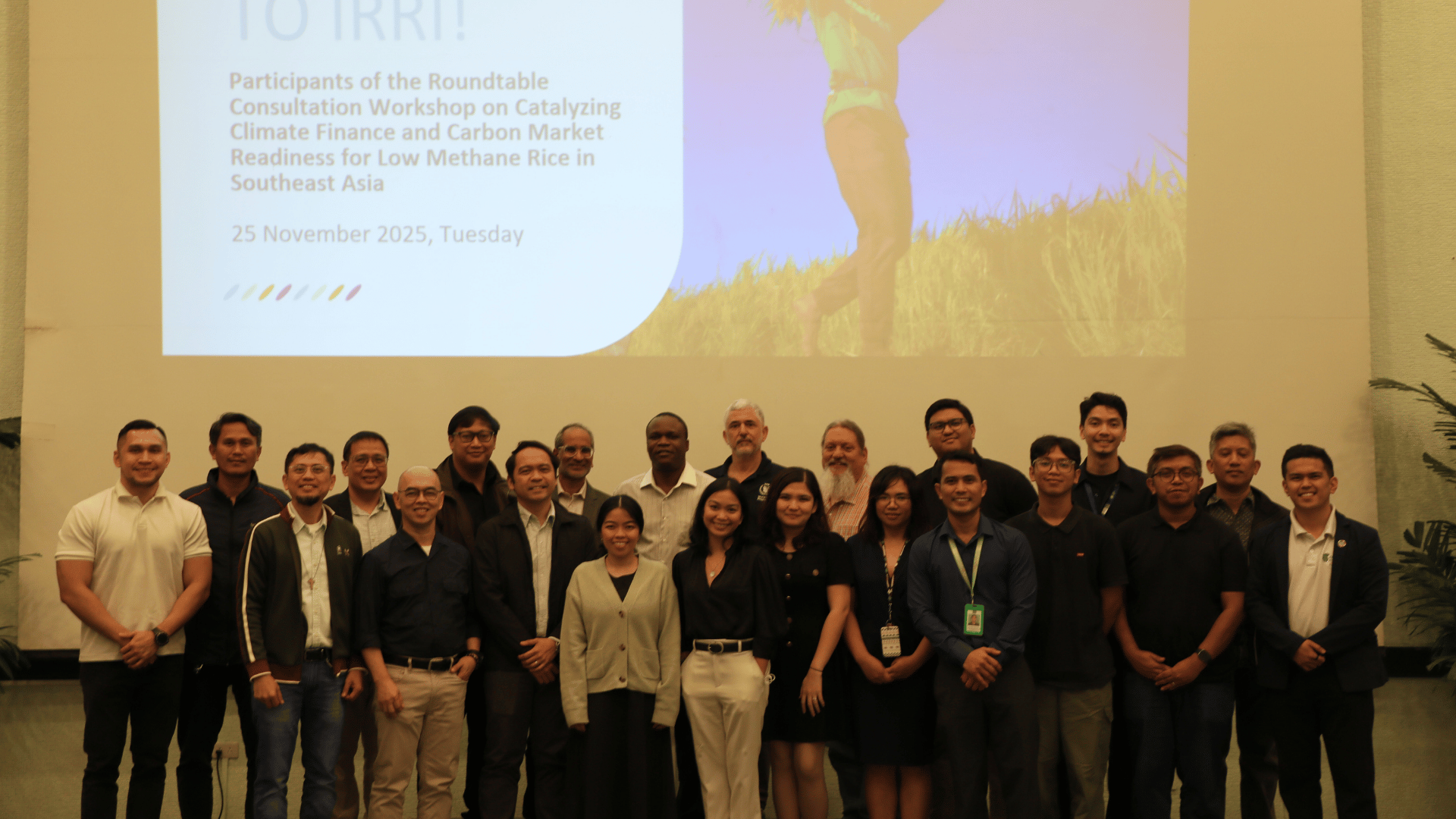IRRI, GCNP, and CCAC dialog with multistakeholder group for climate action and finance in the Philippines

IRRI convened a roundtable discussion with multistakeholder partners to talk about accelerating climate action and streamlining climate finance in rice systems in the Philippines.
LOS BAÑOS, Philippines (25 November 2025) — IRRI and GCNP engaged private sector representatives from international development partners, climate finance facilities, multilateral donor organizations, and members of the Global Compact Network Philippines (GCNP) in a roundtable discussion to activate collaborations for climate action in rice systems in the Philippines. The Accelerating Methane Reductions (AMR) in Rice Production Systems Project, led by the International Rice Research Institute (IRRI) in partnership with GCNP, and with the support from the Climate and Clean Air Coalition (CCAC), organized this engagement as part of its efforts to address one of Southeast Asia’s most pressing climate challenges: methane emissions from rice production.

Methane (CH4) is a potent greenhouse gas (GHG) with a global warming potential over 25 times higher than carbon dioxide over a 100-year period. The increased presence of this GHG in the atmosphere drives climate change, causing health problems and extreme loss and damage to millions of smallholder rice farmers worldwide. However, rice cultivation presents a critical mitigation opportunity and a strategic entry point for climate finance and carbon market integration, as it has a higher relative mitigation potential than other aspects of agriculture, such as livestock and croplands. “Since rice is a global food and market staple, ensuring that its production and consumption remain climate-smart is critical to global food security.”, explained IRRI Senior Scientist for Agricultural Economics Dr. Valerien Pede.
“Water fits easily into farmers' routines and, if you do this right, it can open doors to carbon finance that can meaningfully benefit our communities.”, shared GCNP Executive Director Glen De Castro. “Today is about weaving those pieces together into something coherent, doable, and scalable. I believe our farmers are ready. The science is strong. The climate case is urgent. The missing link is partnership, the kind that moves us from pilot program to interesting, from interesting to impactful, from avoiding emissions on paper, to actual value flowing into our communities and to the field.”, he continued.
Southeast Asian countries, including the Philippines, Vietnam, and Thailand, are actively developing nationally determined contributions (NDCs) and market-based mechanisms to mobilize investments toward low-emission rice systems. However, these efforts remain fragmented and constrained by technical, financial, and policy barriers including the lack of credible measurement, reporting, and verification (MRV) systems, limited access to carbon market infrastructure, and insufficient donor coordination around agricultural methane reduction initiatives.
“Last week at COP30, the Global Methane Status Report sent a message that is impossible to ignore. Methane reductions are one of the fastest and most cost-effective actions we can take right now.”, stated Climate and Clean Air Coalition’s National Project Coordinator for the Philippines Charlene Sardoma. She also explained that more than 80% of the global methane mitigation potential comes from solutions that already exist and are implemented which include improved water management in rice. “Our project today builds exactly on this global momentum. With your support, we will co-develop this project, and the strategy will outline practical measures, especially in carbon markets. Today's meeting is all about opportunities and collaborative pathways towards this goal.”, she added.

The partners were given a tour and demonstration of IRRI’s facilities, which focused on MRV technologies in rice fields. This included remote sensing, field sensors, and related data platforms. These tools are critical to ensuring transparency, credibility, and scalability of carbon crediting and climate finance mechanisms.

Moving forward, GCNP Institutional Partnership Manager Edward Gacusana stated that once they have begun formalizing partnerships in the Philippines, regional collaborations will follow. This involves streamlining capacity development and aligning climate policy to build low-emission, climate-smart rice systems in Southeast Asia.